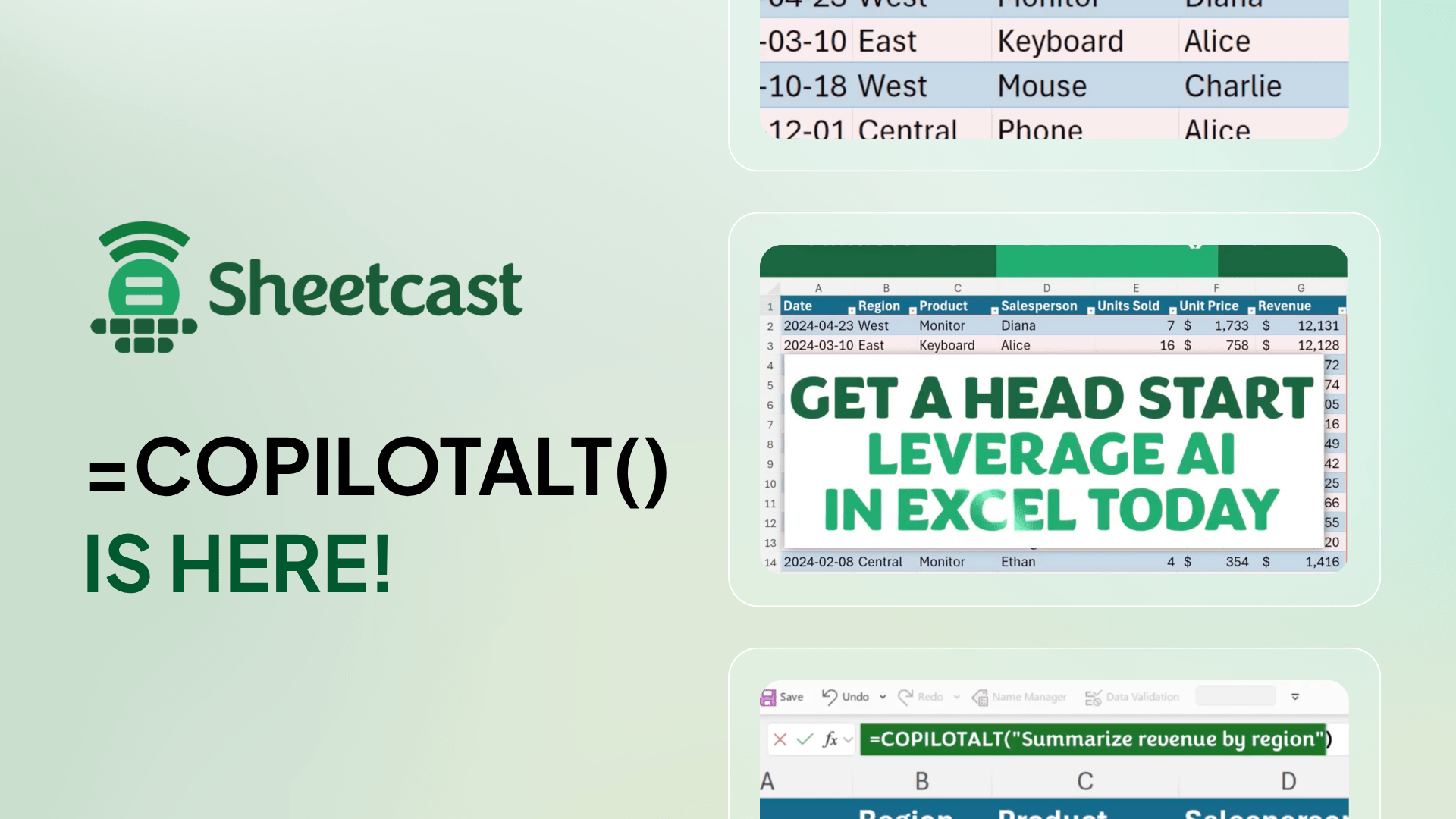
In today's technologically advanced world, workplace computer skills are paramount.
Leading job site, Indeed, ranks them in the top eight most important skills employers look for — in a list that values communication, teamwork, and interpersonal skills the most.
Traditionally, computer skills have tended to cover things like word processing and sending emails. Let’s face it — these are givens nowadays.
There’s another that has sky-rocketed in demand, though — spreadsheet skills. To many, just uttering the word “spreadsheets” brings about certain connotations.
“I’m neither an accountant nor a data analyst. Why do I need spreadsheets?”
It’s not just spreadsheet-wielding geeks who need them. Across every industry, they are used in day-to-day operations. And by far and away, Microsoft Excel is the most popular platform.
Whether it’s forecasting, generating sales reports, organising projects, or monitoring stock — the list of uses is as long as your arm.
Despite that, most people leave school or university with rudimentary capabilities. Their workplace assumes their Excel skills are up to scratch and sufficient for daily activities.
It’s not surprising. Merely seeing the Excel desktop icon alongside Word and PowerPoint’s gives people a false sense of proficiency. After all, a worksheet is just a blank canvas that gives everyone carte blanche to do whatever they want.
However, it’s a double-edged sword. Novices may find Excel easy to grasp from the get-go, but it can lead them to unknowingly create and edit workbooks that use poor practices experts would scorn over.
Excel is not standing still

Excel in 2022 is not Excel in 2012. Since becoming part of the subscription-based Microsoft 365, rapid change has occurred. Regular updates have seen an avalanche of new features and functions come our way, propelling Excel at a pace we never saw when perpetual versions were the norm.
The upside is that our lives can become easier because tasks that once required 10 lines of formula code can now be done with one. The downside is not knowing though — and not fulfilling the potential Excel has.
Are you really happy with those 5-year-old spreadsheets you regularly use? Chances are, they’re error-ridden, full of clunky formulas, full of broken references — and in serious need of an overhaul.
Every company demands productivity, efficiency, and organisation, and Excel has a big part to play in all those things.
What are the benefits of investing in Excel training?

Employee loyalty
Staff turnover is often an issue due to employees feeling underappreciated. However, investing in Excel training improves morale and increases staff retention as it shows you value them.
Employee independence
For companies with IT support teams, spending considerable time helping others with Excel issues shouldn’t be part of their remit. Empowering staff to fix problems independently will reduce their workload burden.
Fulfilled potential
Learning Excel is a never-ending process, as it’s impossible to know everything. However, you should be looking to maximise the ability and know-how of your workforce by encouraging them to find better ways of doing things. This not only helps you, but it helps boost their chances of career advancement.
Increased efficiency
Time is precious, so you want your employees to complete tasks fluidly. Greater awareness of Excel’s functionality will shave seconds, minutes, or hours off repetitive tasks to free up time for elsewhere.
How Excel-savvy does my team need to be?

The employee’s role heavily determines the Excel competency level required. Broadly speaking, there are two camps: specialists and generalists.
Specialists are data analysts, financial analysts and accountants — they’re the people in their natural habitat dealing with data. They can construct complex formulas and use Power Query, Power Pivot, and VBA.
Generalists, on the other hand, have job roles that don’t require advanced use of Excel. Their work typically revolves around data entry and performing basic calculations.
Regardless, it’s clear Excel is used by everyone.
So many nuances and intricacies make up the program that can shape an individual’s decision-making and the likelihood of making errors. This is especially relevant in collaborative workbooks, where people’s habits threaten to conflict.
Just imagine…you have a data analyst, marketer, graphic designer, and customer support employee all working in the same worksheet. It’s a recipe for disaster.
Unsurprisingly, the data analyst is streets ahead of everyone else. They use one XLOOKUP formula while everyone else is using thousands of VLOOKUPs.
You get the idea. Different people, different abilities, and different methods.
The solution?
Train your team. Get them on the same page. And supercharge their Excel knowledge so your workbooks are robust, reliable, and error-free.
Learn more about our Teams package — https://globalexcelsummit.com/teams.
The Global Excel Summit 2023 takes place on 6–8 February 2023 — the world's largest gathering of Microsoft Excel users and experts.
Latest Articles
.png)
Sheetcast - A Natural Evolution for People Who Love Excel
.png)
How to Build Your First AI Agent in Excel

Leap into Excel’s AI revolution with COPILOTALT by Sheetcast
One week, two premier events
Join the European Excel Week - from learning and mastering new skills at Global Excel Summit to elite performance at the Excel Esports European Open.




.avif)